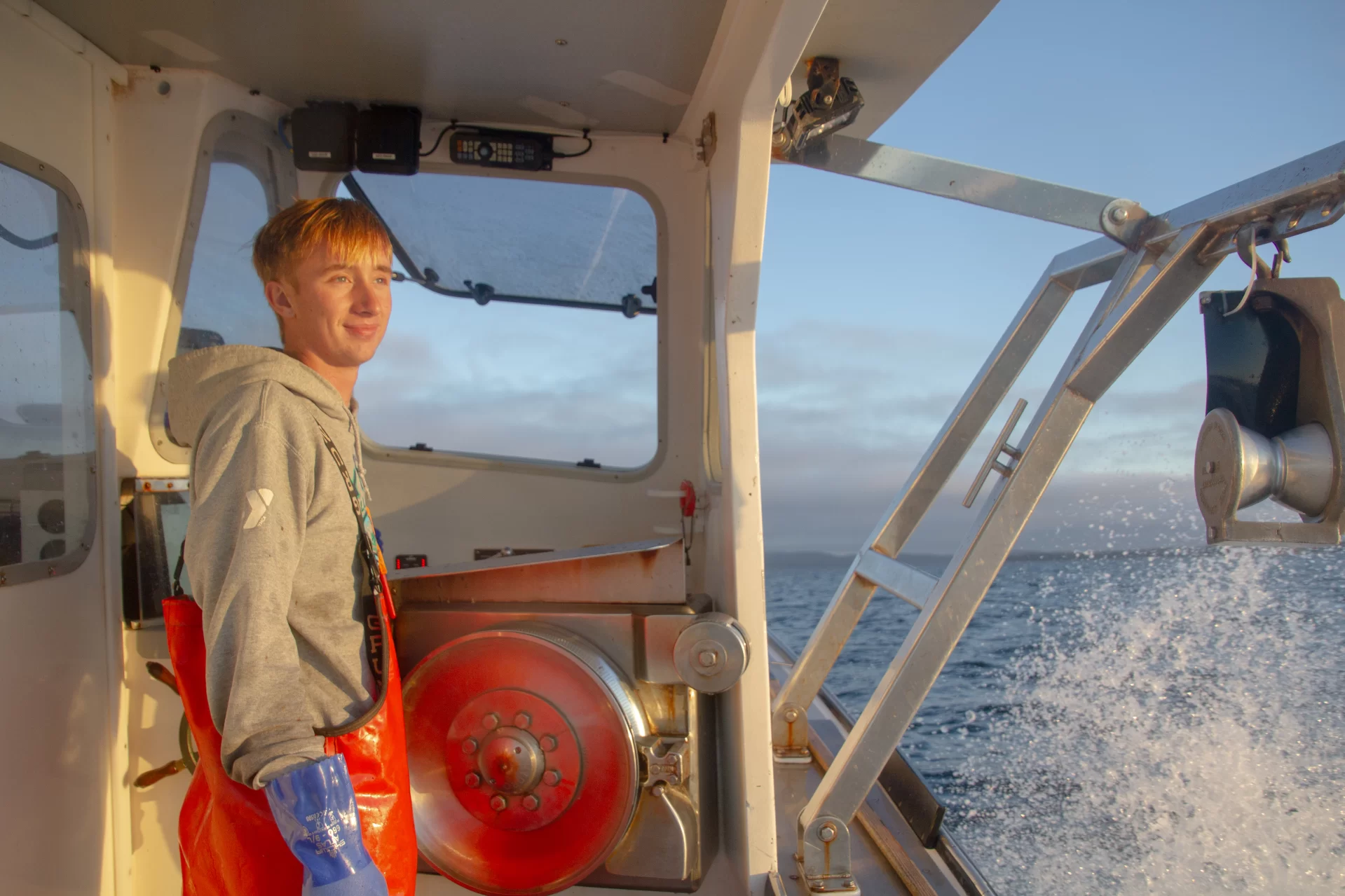Navigating New Tides: Jett Lindelof’s Voyage to Bates

When Jett Lindelof ’27 was 11 years old, he entered the industrious, and sometimes territorial, world of lobstering on the coast of Maine. “I was looking for a summer job, and someone asked if I wanted to try lobstering with them so I said, ‘OK.’ I found I really liked it.”
He began by venturing out on the boat of an experienced lobsterman, eventually applying for his student lobstering license, which allows him a limited number of traps he can set and lobsters he can catch. “I loved working out on the water,” says Jett, who is also an avid sailor.
Jett has experienced the booms in the lobster industry, but the decline of the annual lobster harvest in recent years is something he is well aware of, and it has inspired his studies at Bates. “The southern New England lobster industry has collapsed as the ocean has warmed, and the waters off Maine logged the second-warmest year on record in 2022,” he said. As waters warm, lobster populations decrease, threatening the livelihood of those who have made a living in the industry for generations.
Jett is from Belfast, Maine. He attended Islesboro Central School in Islesboro with a graduating class of just seven students. Although he was expecting Bates to feel bigger having come from Isleboro, whose winter population is close to 500, he enjoys the tight-knit community at Bates. “It’s been a good experience to try something new.” Maine is important to him, but he is grateful for the chance to encounter the wide ranging backgrounds of his Bates classmates. “Islesboro is pretty small, so it’s very community oriented, and I’ve experienced a similar small community feel here as well. The Bates community is great.”
Since venturing onto the lobster boat seven years ago, Jett and his brother have expanded beyond lobstering into aquaculture — farming in water. “So now we’re growing oysters. We started that two years ago and we’re in the process of diversifying into kelp as well.”
Through the state they lease sections of waters ranging from six feet to 30 feet, where they can grow and harvest their crop, all while contributing to the quality of local waters. Oyster farming has risen in popularity over the years due to its benefits to consumers, farmers, and the ocean. “Oysters are filtering phytoplankton and excessive nutrients out of our waterways, so they’re basically making clean water cleaner.”
While at Bates, Jett has been able to further his interest in aquaculture and marine science while also exploring new interests. The classes he has taken include subjects such as economics, environmental science, marine science, and music. “[My classes] have definitely sparked my interest in going more into aquaculture. It seems like the future of the marine industry in a way.”
One of Jett’s favorite courses at Bates so far was “Climate Solutions Workshop,” offered last Short Term by the Department of Earth and Climate Sciences. Including lab work and field trips to learn about weather patterns, soil samples, and how to investigate current topics in global change, “it was very hands-on, which I enjoy,” says Jett. The EACS department as a whole emphasizes the significance of communication, teamwork, and practical, hands-on learning in various settings, including the field, laboratory, and classroom. In their courses, students collaborate with peers, faculty, and community partners to address fundamental questions and tackle real-world challenges.
Jett envisions a future for himself on the Maine coast, where he plans to deepen his commitment to both his businesses and his passion for the ocean. Drawing inspiration from the rugged coastline and rich maritime heritage of his home state, Jett dreams of creating a thriving enterprise that not only contributes to the local economy but also promotes environmental stewardship. Jett looks forward to contributing to the community that has shaped him, all while enjoying the beauty and unique character of his home state.